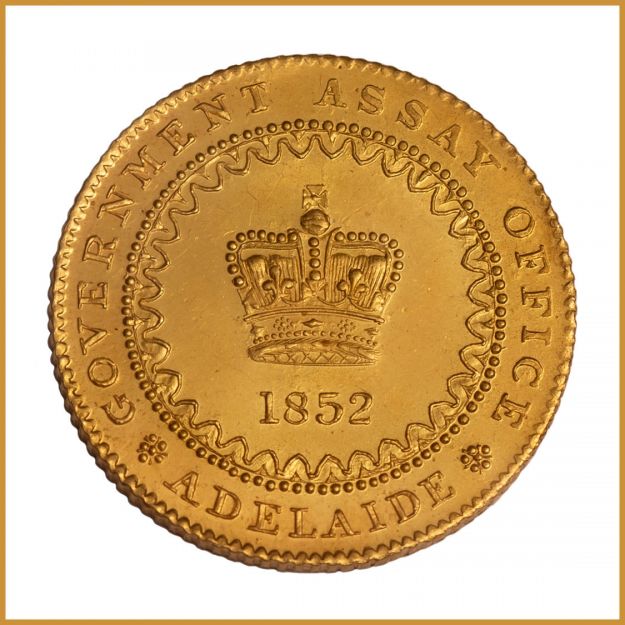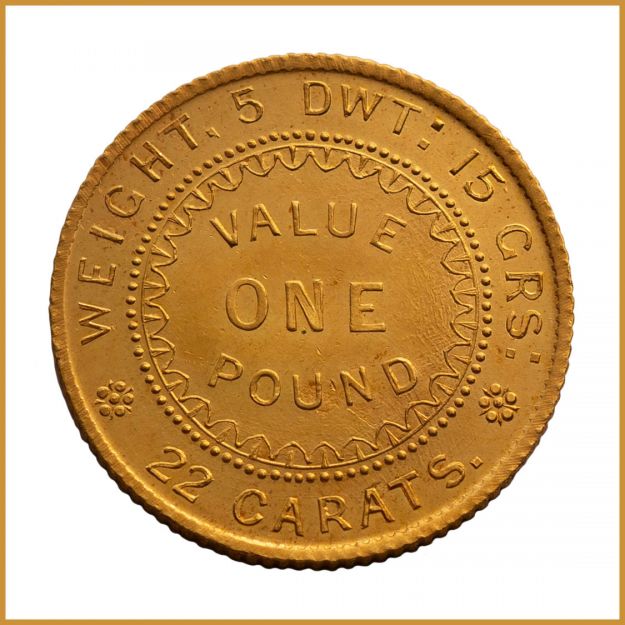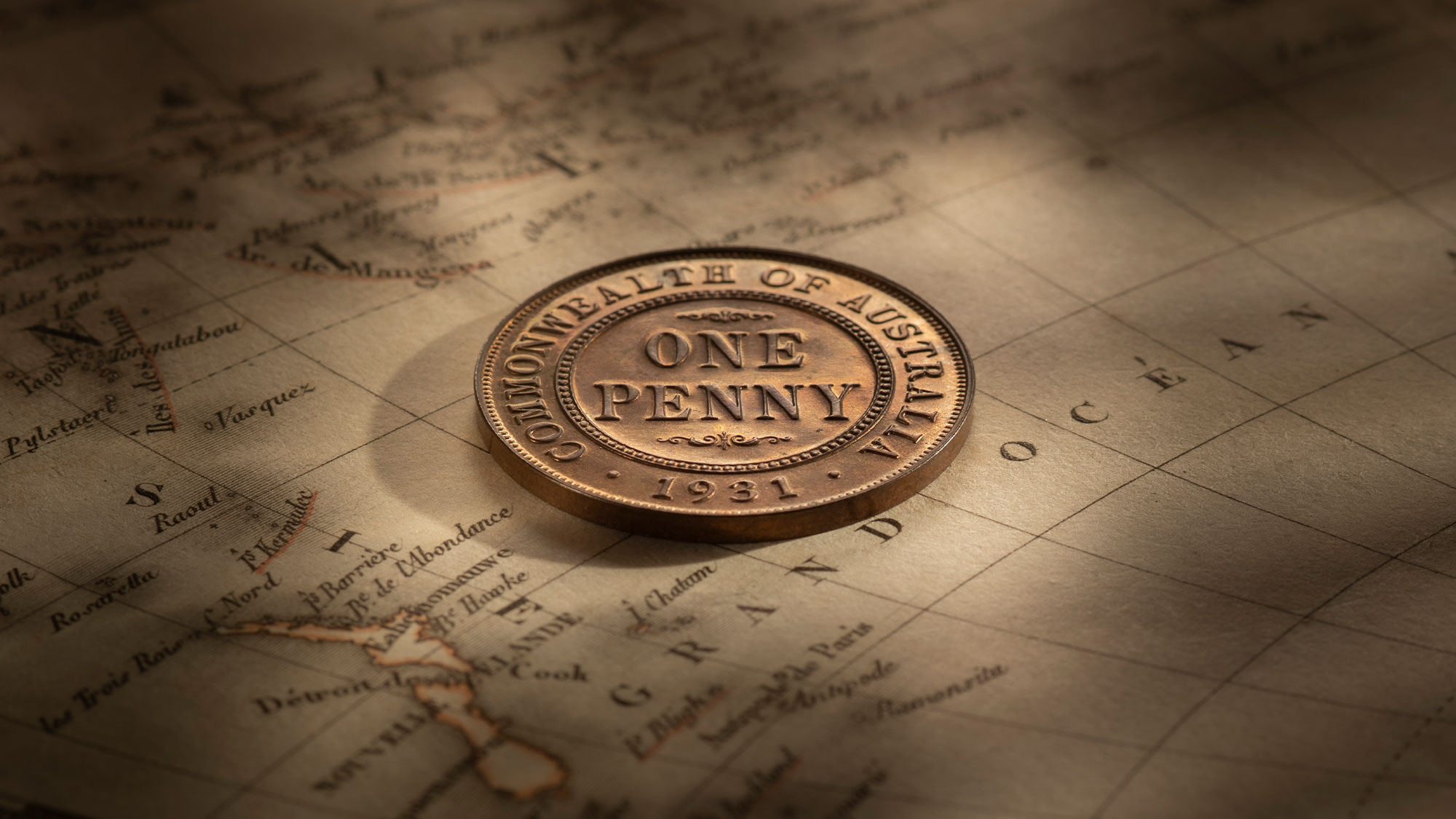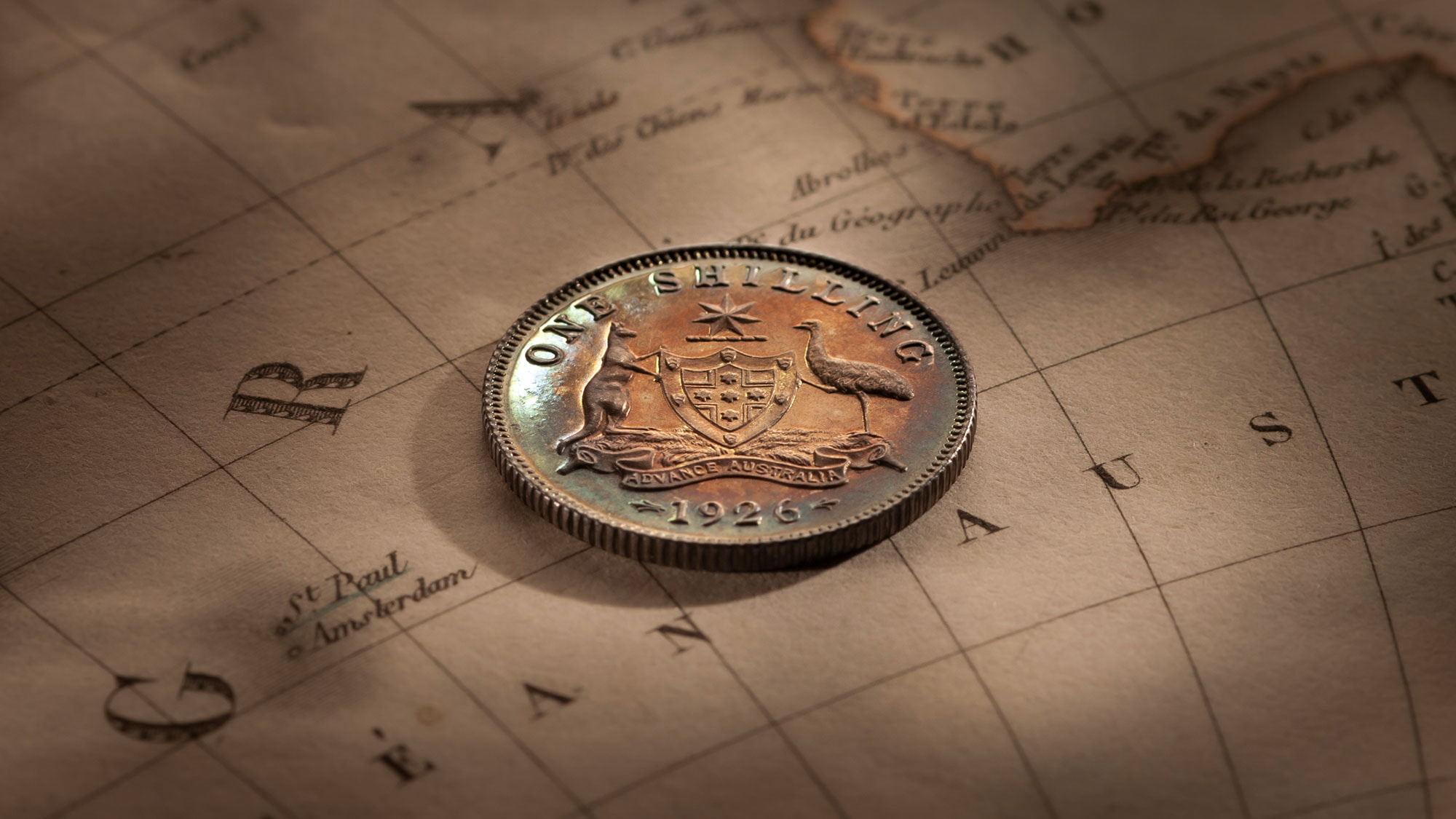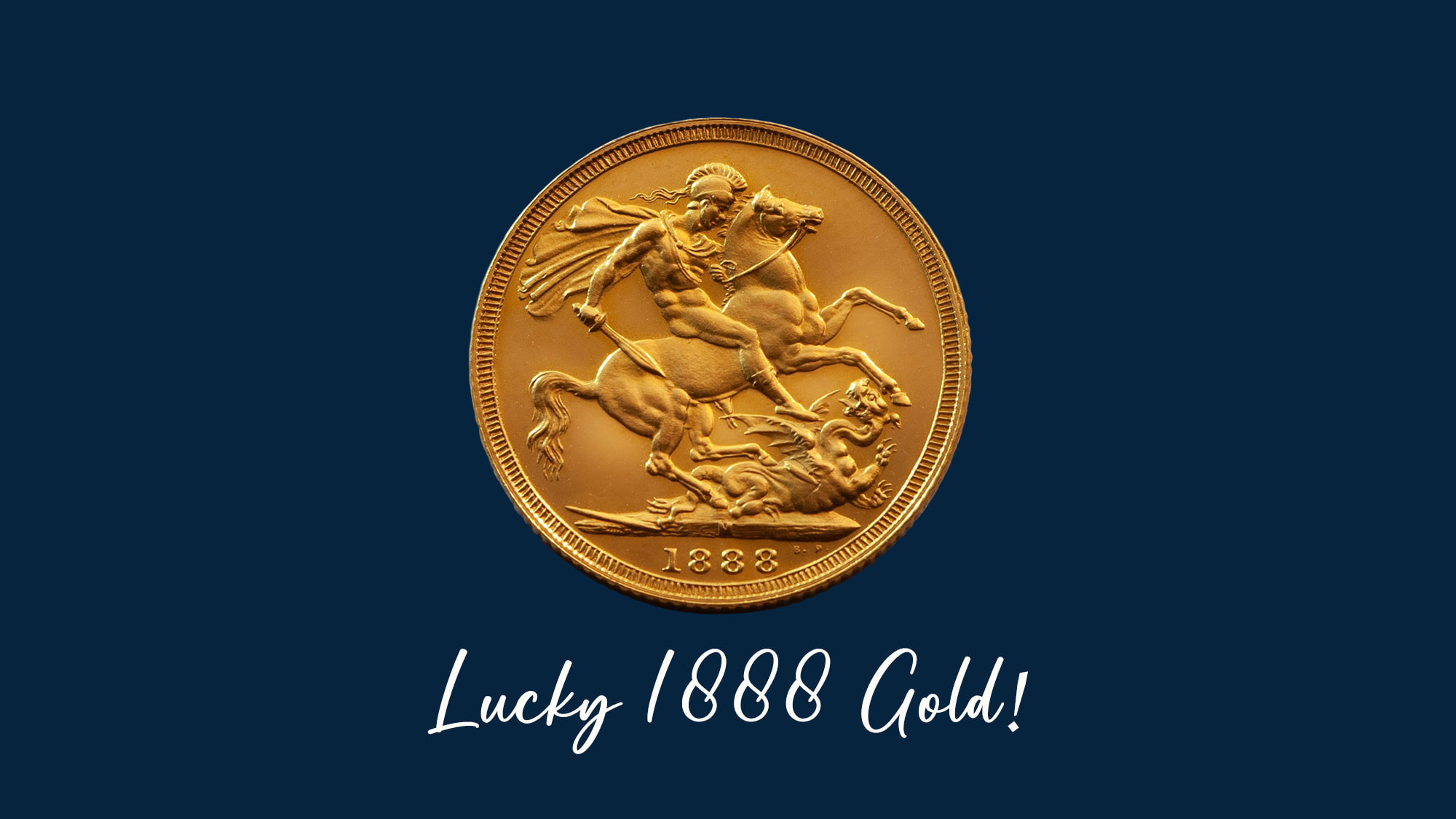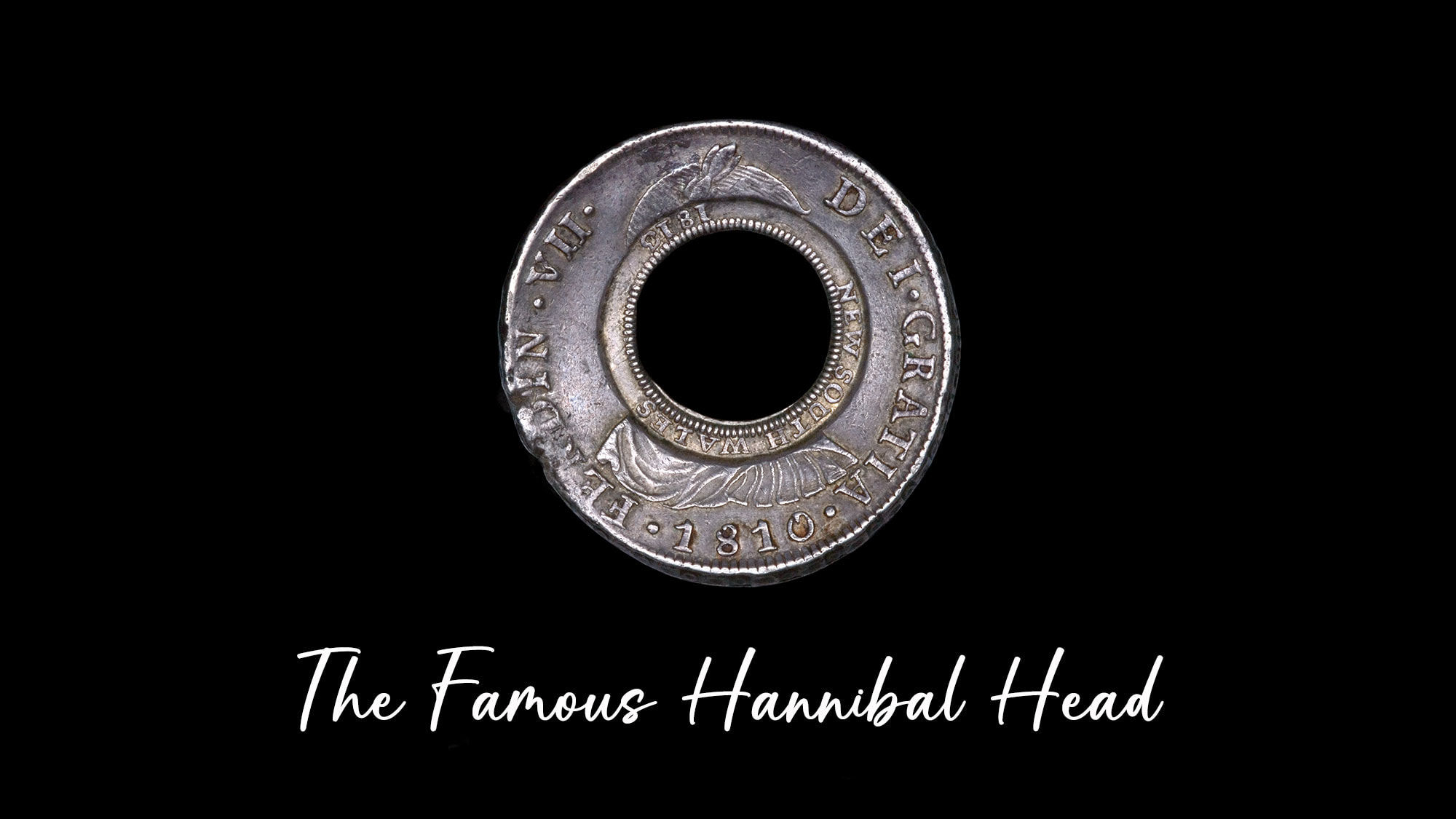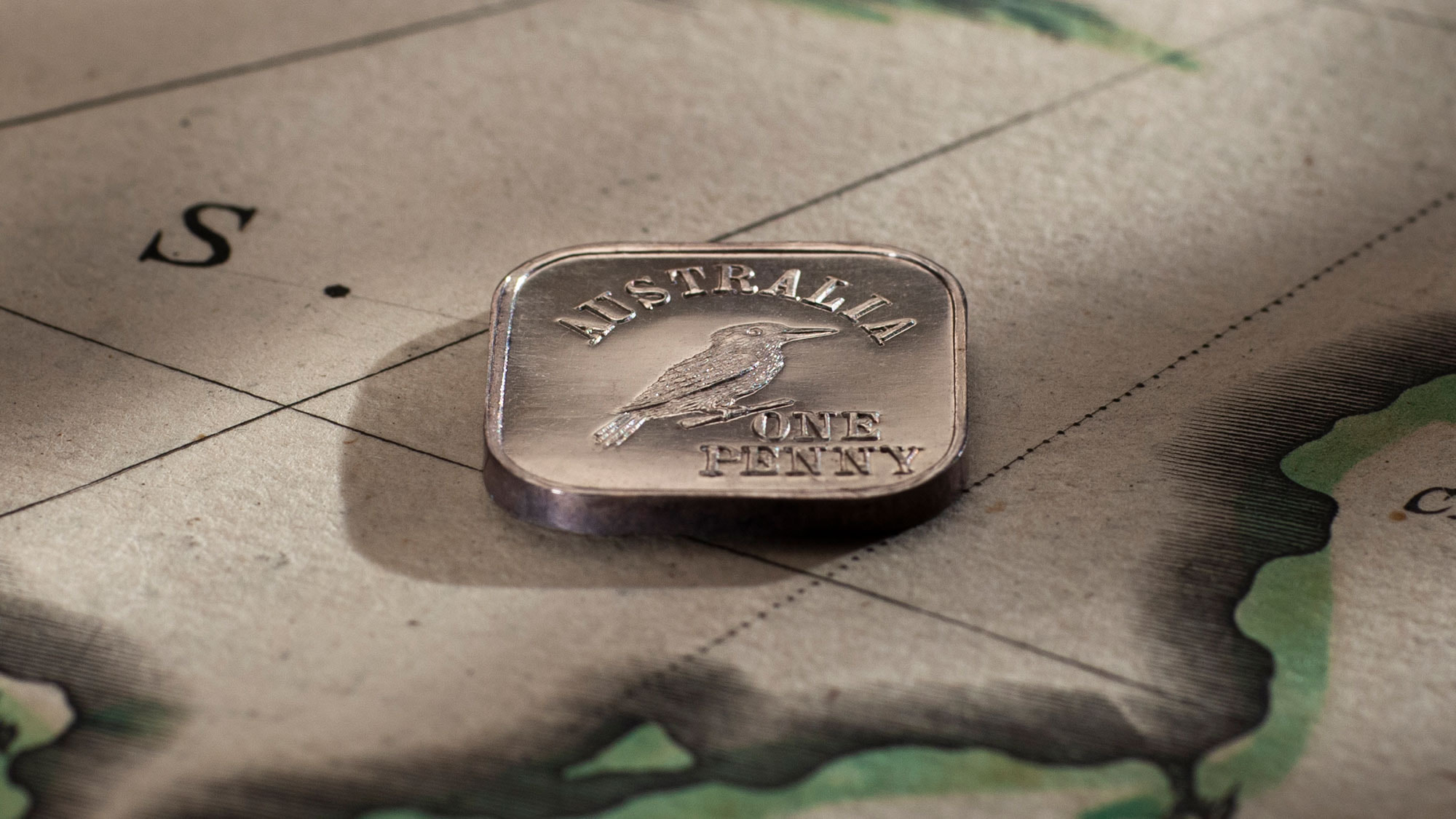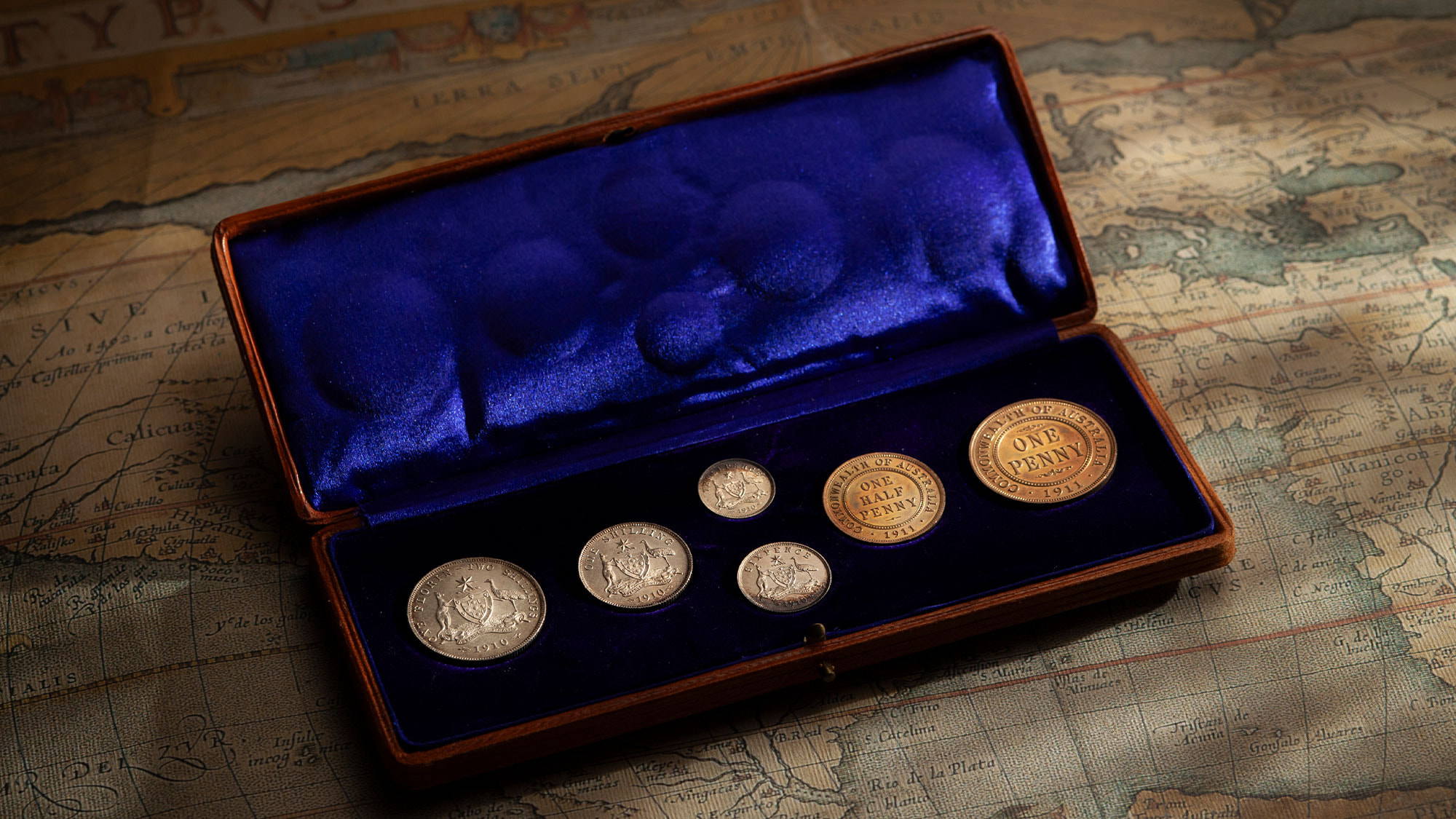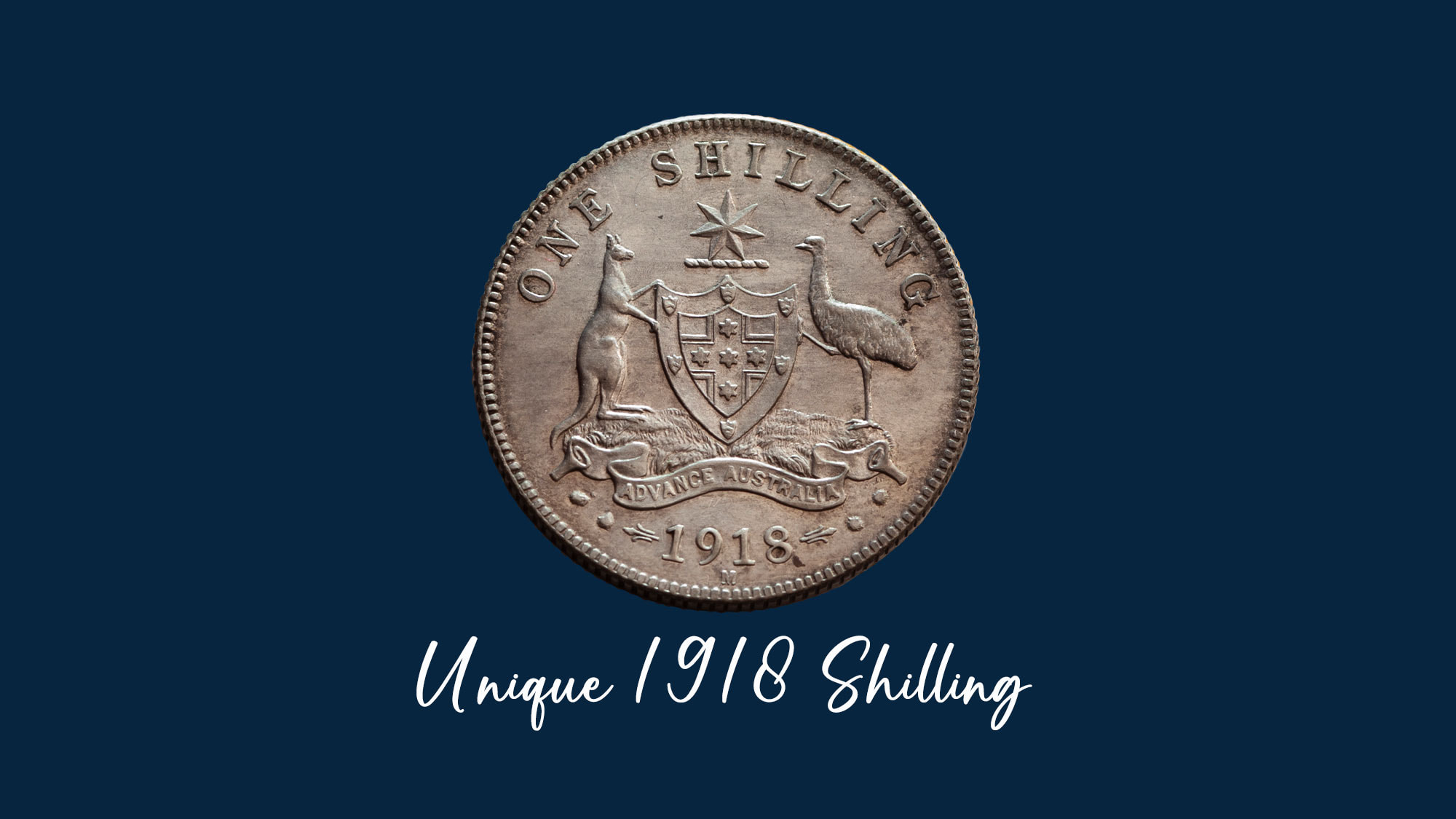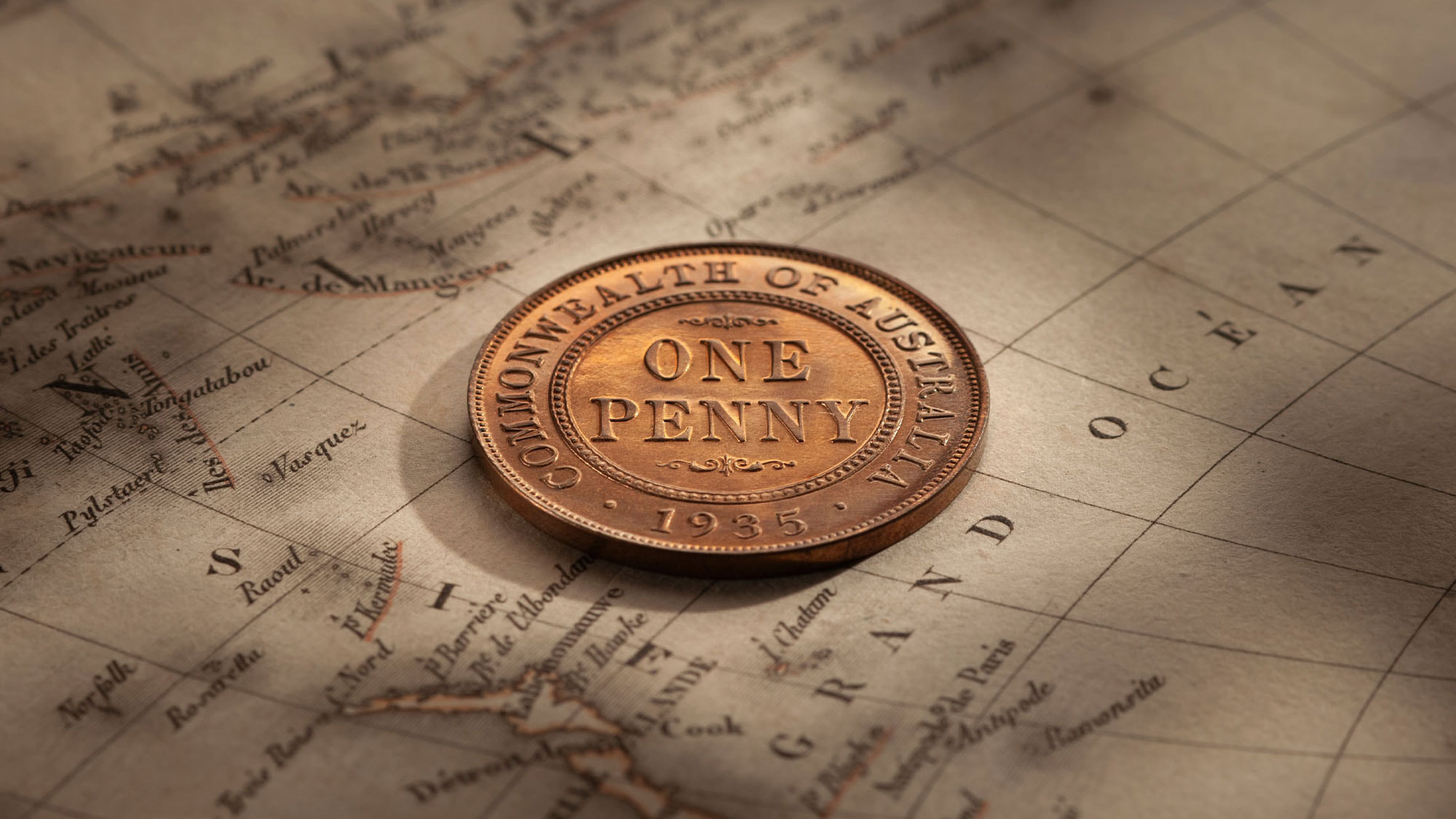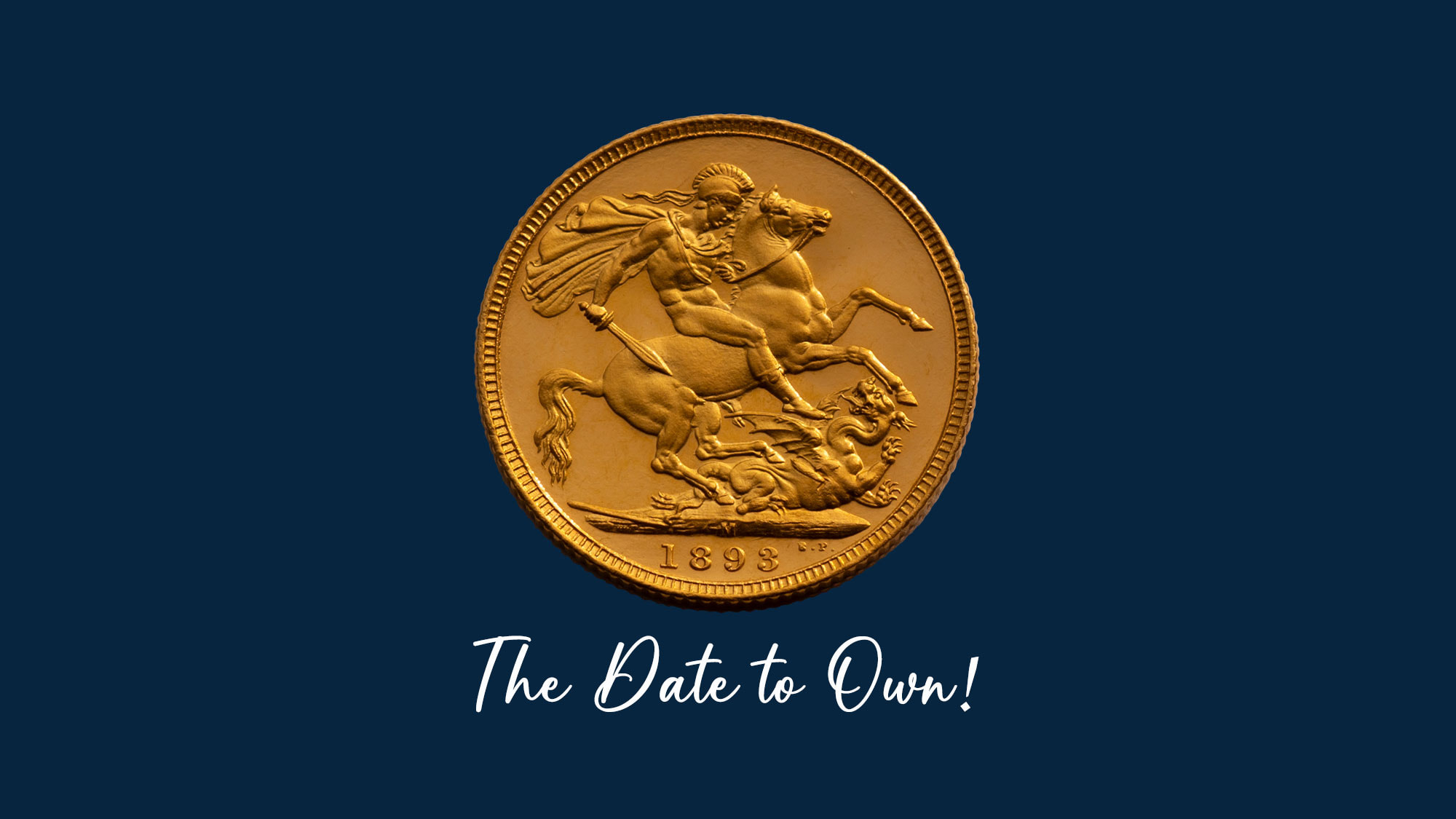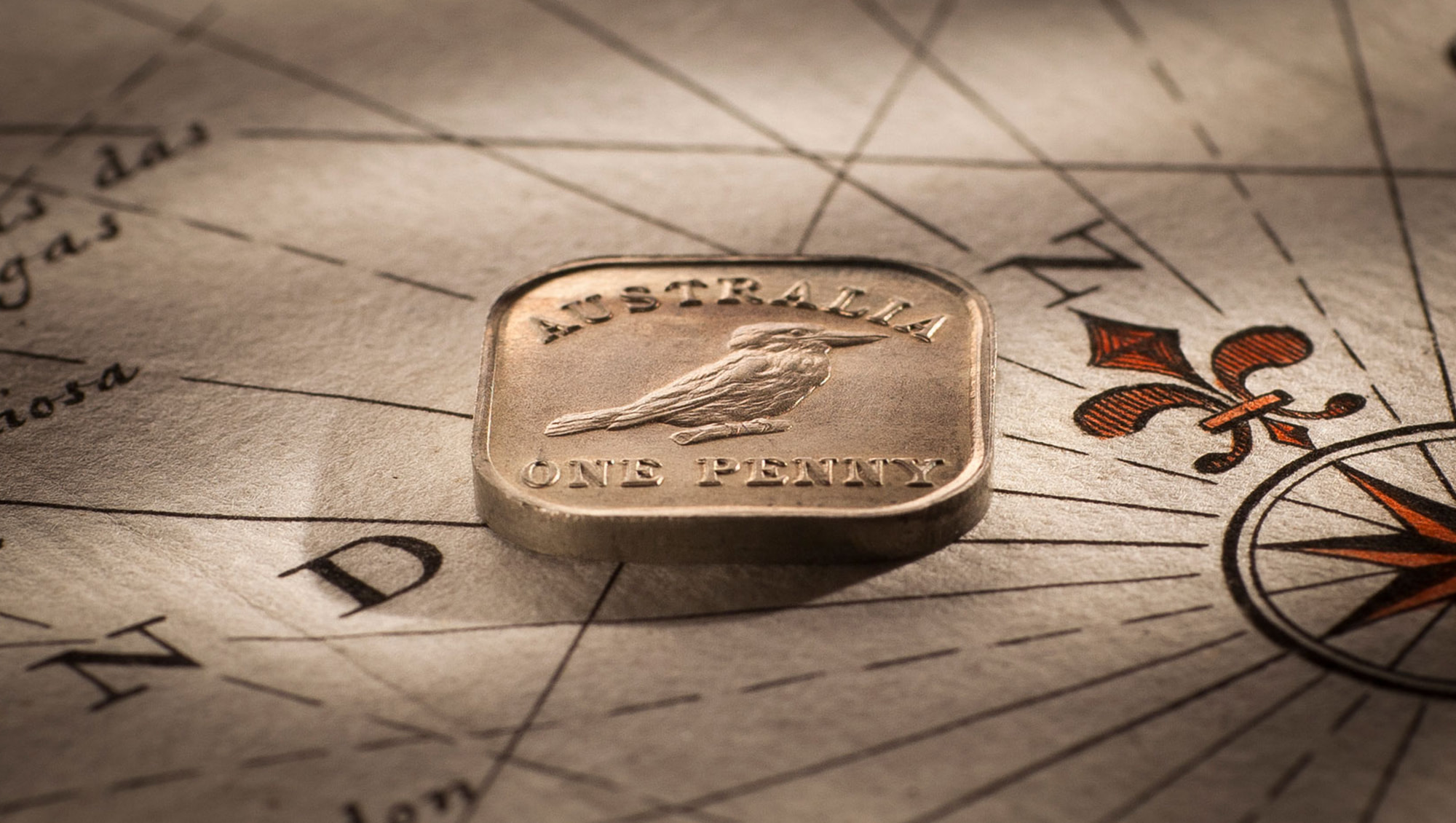The Eliasberg 1852 Adelaide Pound, formerly owned by one of the world's greatest 20th century collectors, Louis E. Eliasberg Snr.

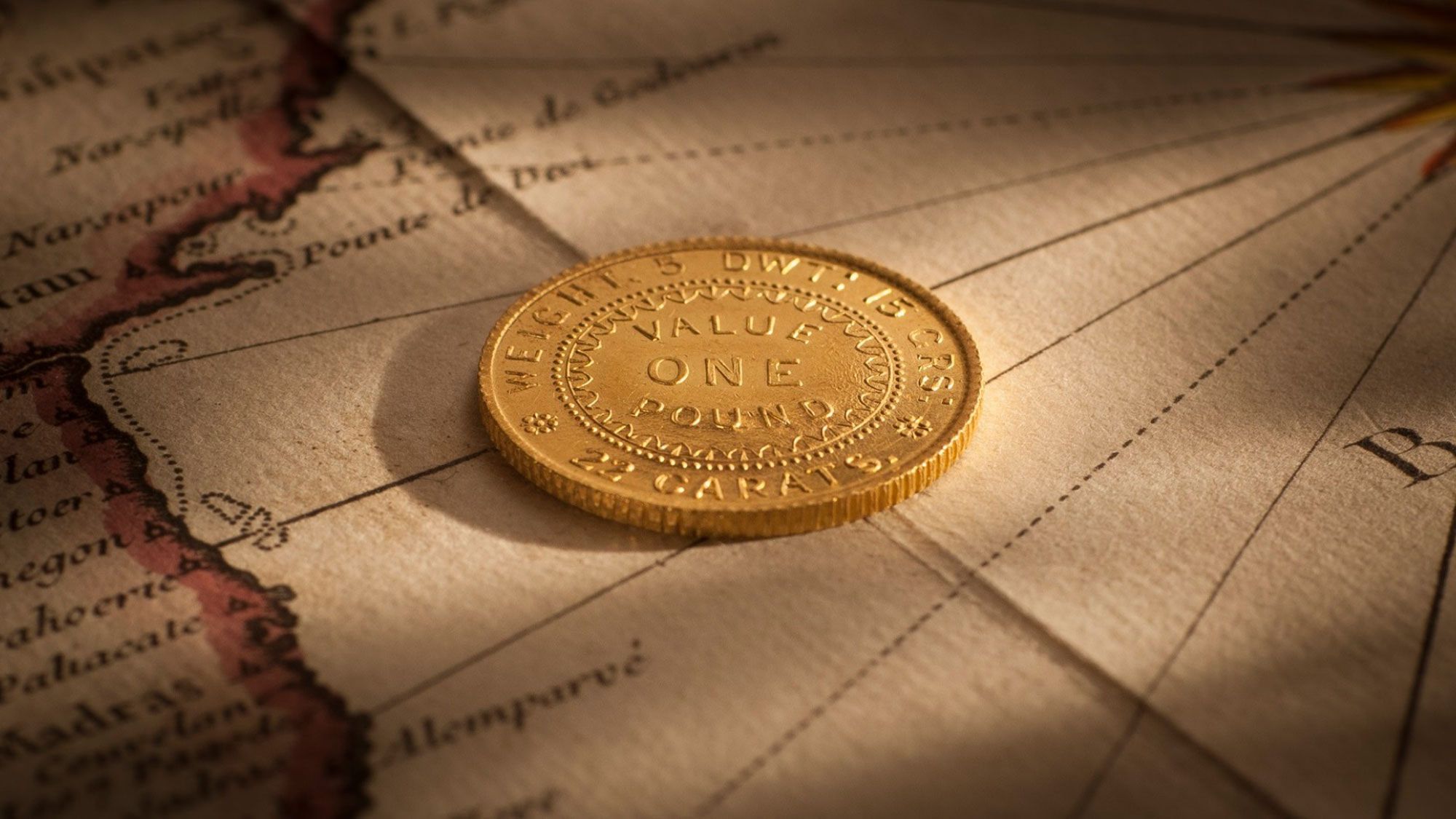
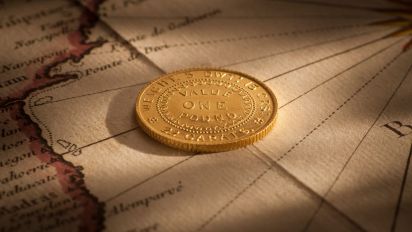
Collectors seek out the 'seldom found'. And collectors seek out the exquisite. American collector, Louis Eliasberg, found what he was seeking in this 1852 Adelaide Pound.
The Eliasberg Adelaide Pound promises and delivers an experience. The coin is legendary. Choice Uncirculated, exceptional design definition and lustrous satin fields. Its state implies that the coin must have been put aside soon after minting. And indicates that for the coin’s lifetime, every owner has absolutely known that it was special.
The person who acquires this Adelaide Pound will take their place in history, permanently associating themselves with both the coin and the famous Eliasberg name.
The Eliasberg Adelaide Pound was part of the Louis E. Eliasberg Collection, a name and collection so esteemed in numismatic folklore that it adds a special cachet to any coin associated with it.
A portion of his Collection was auctioned in New York in 2005 by American Numismatic Rarities in conjunction with Spink. The Eliasberg Adelaide Pound was so highly regarded that it was featured as one of the cover items on the catalogue. (A copy of the catalogue will be provided.)
The auction made history, with the Eliasberg Adelaide Pound establishing a new world record price.
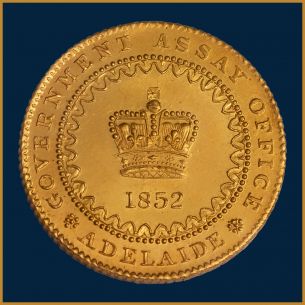
Eliasberg
1852 Adelaide Pound
Type II
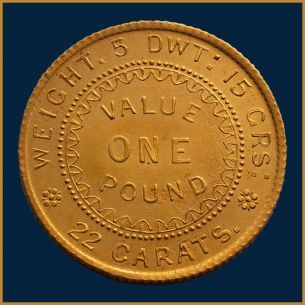
Eliasberg
1852 Adelaide Pound
Type II
The first gold coin for the nation was struck at the Adelaide Assay Office on 23 September 1852. We know it today as the 1852 Adelaide Pound. It is our most popular gold coin, and sought after at all quality levels.
Collectors have a choice when it comes to acquiring an 1852 Adelaide Pound. An example from the first production run. Or the second run. The nation’s first gold coin was produced over two production runs.
The same obverse design was used throughout, featuring the legend 'Government Assay Office Adelaide', a crown and the date '1852'. But each production run used different reverse dies, the first using a die with stylish lettering and an elegant beaded inner circle. (Coins struck from the first die are known as Type I Adelaide Pounds.) The second die had plain lettering and a crenellated inner circle. (Coins struck from the second die are known as Type II Adelaide Pounds.)
Irrespective of the production run, the Adelaide Pound is a scarce coin. Forty examples survive today of the Type I, with perhaps two hundred and fifty of the Type II. So which coin to choose. The answer is an easy one and for most collectors it is the Type II.
Because of their extreme rarity, Adelaide Pounds minted in the first production run, require a substantial financial outlay. In excess of $100,000 for quality examples with the top Type Is commanding $400,000-plus.
Purely from a financial perspective, most collectors opt for coins from the second production run in the knowledge that for $105,000 you can acquire one of the very best Type II Adelaide Pounds. In the case of this coin, number two in the pecking order!
The 'Eliasberg' 1852 Adelaide Pound Type II
Price $105,000
Choice Uncirculated, exceptional design definition, fully lustrous, satin fields and in our view, number 2 in the pecking order of Adelaide Pounds.
When you evaluate a coin, start at the edges and work your way in. And with this Adelaide Pound,
• on the obverse, the edge denticles are strong all the way around as is the legend 'Government Assay Office Adelaide'
• the cross on the orb at the top of the crown is sharp
• the fleur de lis strongly three-dimensional and the pleats in the cloth at the back of the fleur de lis are fully struck-up, crisp with no softness
• on the reverse, the edges are solid all the way around, the fields super, super-reflective
Why this Adelaide Pound is just so good!
History records that disaster struck during the early stages of the minting of the 1852 Adelaide Pound. Die-maker and engraver Joshua Payne later confirmed that staff had struggled to find the correct pressure levels to exert on the dies to execute a strong overall design.
In the early stages of production, pressure was applied to the edges to ensure that the denticles and legend were strong. The downside to this decision is that excessive pressure applied to the edges cracked the reverse die, forcing an interruption to minting.
The upside to this decision is that Adelaide Pounds struck during the first production run have almost picture-perfect edges and beautiful strong denticles.
Relaxing the pressure on the dies in the second production run, lengthened the die usage but created its own shortcomings Once the pressure was reduced on the edges, the perfection that was achieved in the denticles and legend in the first run of coins was simply not achievable in the second run.
Adelaide Pounds from the second production run notoriously have weakness in the edges and weakness in the legend, most particularly in the Assay Office area. And this is noted in about nine out of every ten examples. But, the crown design will invariably be well executed with flattened areas mainly due to circulation. (Flattened areas may also reflect die usage and be due to a poor strike.
This Type II 1852 Adelaide Pound has a beautiful balance of strong edge denticles, strong legend and a brilliantly struck crown. It is the exception to those most frequently sighted.
© Copyright: Coinworks
